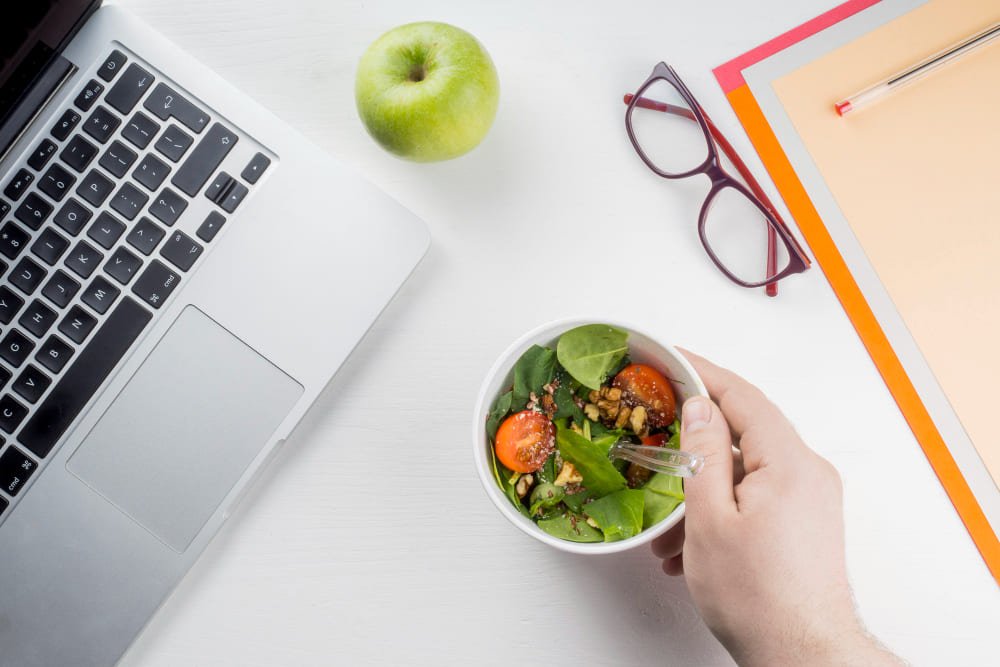When it comes to studying and exams, your brain needs fuel to perform at its best. What you eat can significantly impact your focus, energy levels, and memory.
The right food can help you study new material and prepare for exams more effectively by nourishing your brain.
Highly nutritious foods have been shown to enhance cognitive brain function, aiding in the comprehension and retention of information.
Here are 14 of the best foods to help you study and excel during exams.
14 Top Foods For Studying Before Exam
1. Berries
Various berries like strawberries, blueberries, blackberries, and raspberries are excellent for the brain. The berry family is rich in flavonoid compounds called anthocyanins.
Anthocyanins can boost brain performance by increasing blood flow to the brain. These compounds also protect the brain from inflammation and promote the production of nerve cells involved in learning and memory.
Studies have shown that consuming berries improves brain function.
2. Oranges Fruits
Oranges also contain a variety of flavonoids such as hesperidin, naringin, and quercetin. These flavonoid compounds enhance learning, memory, and protect nerve cells.
Research indicates that consuming oranges can improve mental performance. Oranges increase blood flow to the brain, aiding in performance on symbol and number tests.
3. Dark Chocolate
Cocoa and dark chocolate also contain flavonoids that are beneficial to brain health. Studies have shown that individuals who consume chocolate perform better on mental tests. Cocoa also enhances memory.
4. Nuts
Nuts contain nutrients beneficial to brain health, including vitamin E and zinc. Nuts help the brain and body stay strong to absorb information.
Studies have shown that consuming walnuts for 8 weeks significantly improves verbal information processing abilities.
5. Eggs
Eggs contain vitamin B12, choline, and selenium, which are beneficial to the brain. Selenium aids in coordination, memory, cognition, and motor performance. Meanwhile, choline aids in brain development to enhance memory.
Vitamin B12 also improves neurological health.
6. Avocado
Avocado can enhance brain function. Avocado is an excellent source of lutein, which can influence brain function. Studies have shown that consuming avocado can improve accuracy on mental tests.
Avocado is known to have many benefits for beauty. Various masks made from this fruit can overcome various problems on your facial skin.
Containing vitamin K and folate, avocado helps prevent blood clotting in the brain, which, of course, protects us from strokes.
These contents also improve cognitive function, especially memory and concentration. Not only that, avocados contain high levels of vitamin C and vitamin E. Vitamin C itself is useful for maintaining the functioning of vitamin E, which can reduce cholesterol in the body.
Excess cholesterol can cause memory loss by inhibiting sufficient blood flow to brain cells.
7. Fish
Fatty fish are rich in omega-3 fatty acids, which play a vital role in brain health. Fatty fish are also a source of vitamin B12 and selenium.
Studies have proven that higher fish intake can improve memory performance and brain health.
8. Whole Grains
The brain requires a steady supply of glucose from the body. Whole grains play a role in supporting this need. The fiber in whole grains helps regulate glucose release in the body.
This food also contains B vitamins that are useful in maintaining nervous system health. For those who find it challenging to remember various things, it’s a good idea to regularly consume whole grains.
Foods that fall under whole grains include brown rice or chocolate pasta, whole wheat bread or biscuits, cereals, and whole wheat tortillas.
9. Vegetables
Regular consumption of green vegetables, such as spinach and kale, can improve memory capacity because green vegetables are rich in antioxidants and folate.
Research also indicates that folate-rich foods can enhance memory by reducing inflammation in the brain and increasing blood flow to the brain. Carrots, spinach, pumpkins, sweet potatoes, and tomatoes can be your choice.
Alternatively, colorful vegetables like purple cabbage have benefits for increasing memory. High levels of vitamin C and anthocyanins are essential nutrients for the brain.
Vitamin C stimulates white blood cell production, thus maintaining the immune system. When our immune system is healthy, the blood circulation, nerves, and parts connected to the brain also function well.
Not only that, anthocyanins are excellent for protecting memory systems and brain function. This substance can prevent memory disorders caused by plaque buildup in brain blood vessels.
10. Milk and Yogurt
Milk-containing foods have high levels of vitamin B and protein. Milk and yogurt can also help you feel full due to their carbohydrate and protein content, providing energy for the brain.
By consuming them regularly, you will experience their benefits, where you will easily remember various things. Foods containing milk have high levels of vitamin B and protein.
These two essential nutrients can help the growth of brain tissues, enzymes, and neurotransmitters. Consume them regularly to improve your memory.
11. Broccoli
Broccoli, with its vitamin K content as an antioxidant and anti-inflammatory, can help protect the brain from damage.
Research suggests that parents need high levels of vitamin K to improve memory. Additionally, broccoli contains iron that promotes the formation of red blood cells, ensuring that blood flows from the heart to all organs properly.
Iron also ensures that the brain receives adequate blood and oxygen supply for optimal memory function.
12. Oats
Oatmeal is a significant source of nutrition for the brain.
Oats provide energy for the brain, which is essential for starting the day. Oatmeal made from oats is considered one of the healthiest foods.
Oats contain more than 50 nutrients needed by the body, including carbohydrates, fiber, fats, protein, vitamins B1, B2, B3, B5, B9, calcium, magnesium, folate, phosphorus, manganese, potassium, and iron.
Vitamins and minerals are essential for growth and development, as well as maintaining bone health, body tissues, metabolism, the immune system, and various other processes that occur in your body.
13. BEEF
Make sure to choose beef that is not high in fat. Beef contains essential minerals such as iron and zinc.
These minerals are thought to promote proper brain function. Iron is crucial in the production of neurotransmitters like dopamine and serotonin.
Meanwhile, zinc can help maintain the health of brain cells. Similar benefits to vegetarians can also be found in nuts and soybeans.
14. Water
Drinking water is essential for the brain. When dehydrated or lacking in drinking, it can cause damage to your memory.
Therefore, never forget to drink water to protect your brain and prevent short-term and long-term memory loss in the brain. Humans should drink at least eight glasses of water every day to meet daily fluid needs to keep the body hydrated.
Men need to drink at least 2 liters of water, while women need as much as 1.6 liters to meet their daily fluid needs.
Conclusion
In addition to memory, concentration also plays a crucial role. Surely you don’t want to miss remembering important lessons due to lack of concentration, right? Here are some simple ways you can do to improve your concentration:
- Pay close attention to every piece of information and task you are doing. You cannot concentrate on something if you are not paying attention and absorbing what is assigned to you.
- Prioritize tasks or things that are priorities and do one job at a time. This can help you concentrate without being interrupted or switching tasks.
- Make notes about important things you need to do. These notes can serve as your daily reminders.
- Turn off your mobile phone to avoid disturbing your concentration when studying.
- Take a break from thinking for a while after some time to boost your concentration again.
Here are tips Tips to Stay Calm and Focused During Exams because you need to stay focus for smooth problem solving






